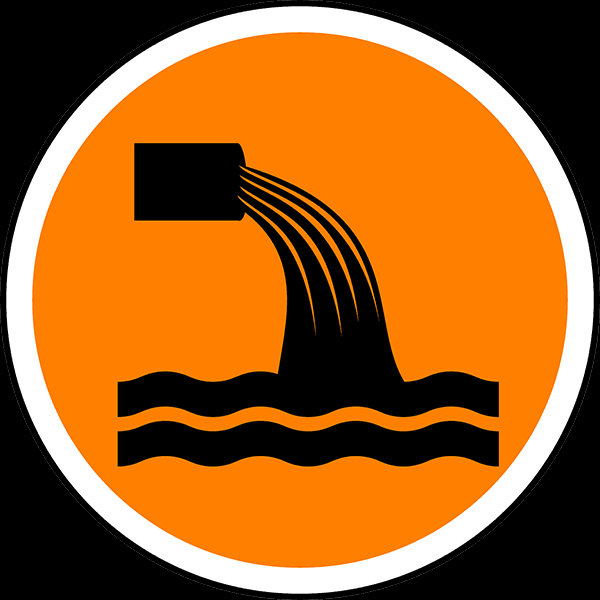The Main Principles Of Reclaim Waste
The Main Principles Of Reclaim Waste
Blog Article
Reclaim Waste Things To Know Before You Buy
Table of Contents7 Simple Techniques For Reclaim WasteThe Greatest Guide To Reclaim WasteThe smart Trick of Reclaim Waste That Nobody is Talking AboutReclaim Waste for DummiesReclaim Waste Fundamentals Explained
Residential sewer waste refers to the waste and items from a domestic septic tank. The correct administration and disposal of residential sewage waste require fluid waste to be transferred to a sewage treatment plant where the correct techniques and devices are used to purify and dispose of waste.
Commercial waste commonly includes possible threats, such as flammable materials or a blend of liquid and strong waste items, and calls for an advanced and thorough disposal procedure. The disposal of business waste normally entails the filtering of waste before transport to ensure risk-free and proper disposal. Industrial waste is produced from byproducts and drainage of industrial processes and manufacturing.
This sort of waste can not make use of the same sewer monitoring transportation or processes as septic or industrial liquids. The commercial waste management procedure calls for the inspection and screening of fluid waste before it undertakes the disposal process (liquid waste removal). Runoff waste is the liquid waste that originates from runoff and excess stormwater in highly populated locations or cities
Drainage waste can trigger contamination and flooding otherwise managed appropriately. Discover more concerning drain cleansing and waste administration. Ensuring correct waste management can stop calamities and minimize environmental injury. Both individuals in property settings and experts in commercial or manufacturing sectors can take advantage of recognizing the processes and guidelines of fluid waste management.
What Does Reclaim Waste Mean?
Call PROS Services today to discover about our waste management and disposal services and the appropriate ways to look after the fluid waste you generate.
(https://reclaimwaste1.start.page)This so-called 'wastewater' is not just an important resource yet, after treatment, will be launched to our land, waterways or the sea. Made use of water from bathrooms, showers, bathrooms, cooking area sinks, laundries and industrial procedures is understood as wastewater.

water utilized to cool equipment or clean plant and tools). Stormwater, a form of wastewater, is drainage that streams from farming and city areas such as roof coverings, parks, yards, roads, courses and gutters right into stormwater drains pipes, after rainfall. Stormwater moves unattended directly to regional creeks or rivers, ultimately reaching the ocean.
A Biased View of Reclaim Waste
In Queensland, most wastewater is dealt with at sewage treatment plants. Wastewater is delivered from domestic or commercial sites via a system of sewers and pump stations, known as sewerage reticulation, to a sewer therapy plant.
The Division of Natural Resources suggests city governments regarding managing, operating and keeping sewerage systems and treatment plants. In unsewered locations, neighborhood federal governments might call for householders to install private or family sewage therapy systems to deal browse around this site with residential wastewater from commodes, kitchen areas, bathrooms and laundries. The Department of Natural Resources authorizes using house systems when they are proven to be efficient.
In some brand-new subdivisions, therapy of some stormwater to get rid of clutter, sand and crushed rock has actually started making use of gross toxin traps. Wastewater treatment occurs in four stages: Gets rid of strong issue.
Utilizes tiny living organisms understands as micro-organisms to break down and get rid of continuing to be dissolved wastes and fine bits. Micro-organisms and wastes are integrated in the sludge.
Some Known Details About Reclaim Waste
Nutrient removal is not available at all sewer treatment plants because it requires pricey specialized equipment. Clear fluid effluent created after treatment may still include disease-causing micro-organisms - liquid waste removal melbourne.

This usually suggests wastewater has actually to be treated or impurities eliminated before it can be released to waterways. Most wastewater moves into the sewage system. Under the Act, city governments carry out authorizations and licences for ecologically pertinent activities (Periods) involving wastewater releases that could have a regional influence. The department carries out approvals and permits to ERAs entailing wastewater releases that may have a regional or statewide effect.
Some Known Facts About Reclaim Waste.
Otherwise, samples are considered research laboratory analysis. Often several tests are needed to develop the degrees of each of the various pollutants such as oils, heavy metals and pesticides in water. Tracking supplies accurate info concerning water top quality and can validate that permit problems are being fulfilled. The details gotten via surveillance gives the basis for making water top quality choices.
Report this page